Many people see their pets as part of their family—they provide comfort, support, and, in some cases, unconditional love. Yet, when they pass, people find it hard to understand the grief the owner goes through, as society usually doesn’t deem it as equally serious as when a human passes away. It can make the owner face unique challenges, like isolation and unresolved grief.
Therefore, this woman was glad when her SIL invited her over so she didn’t have to deal with her pet loss alone. However, when she started unloading her duties onto her, it quickly became clear that there was a secret agenda behind her invitation.
Scroll down to find the full story and a conversation with a pet loss specialist, Louise Griffey, and a pet loss grief specialist, Grant Hazell, who kindly agreed to share their insights on grieving a pet.
Owners who go through the loss of a pet can feel misunderstood and isolated
Image credits: Liza Summer / pexels (not the actual photo)
So this woman was glad when her SIL invited her over after losing a pet, however, her intentions were far from pure
Image credits: The Yuri Arcurs Collection / freepik (not the actual photo)
Image credits: Prize-Classroom-5623
A pet owner’s grief can be easily dismissed
Image credits: EyeEm / freepik (not the actual photo)
Pet loss specialist Louise Griffey tells us that a pet owner’s grief is a form of disenfranchised grief. This kind of grief can be easily dismissed, as it isn’t acknowledged or validated by society.
“Because pets are often seen as ‘just animals,’ people may not understand how deep the bond really is. They might say things like “You can get another one” or ‘It’s not like losing a person,’ which only adds to the pain. But the truth is, grief is about love and attachment, not who or what we’ve lost. For many, pets are family, and losing them can be just as devastating, if not more,” she explains.
The grief of a pet shouldn’t be ignored, as the psychological effect of dismissing the grieving of a pet can be severe, says pet loss grief specialist Grant Hazell.
“A grieving person may feel their emotional response is abnormal, invalid, unnatural, and that ‘there is something wrong with them.’ They may feel unable to fully express their grief, being forced to suppress all emotions in fear of being ridiculed and undermined. When suppressing grief, we only serve to prolong the process, denying ourselves healthy and open grieving without the pressure of timeframes or rules.”
“Grief is already heavy, but when it’s not acknowledged, it becomes a silent struggle,” notes Griffey. “Your pain is real, and you deserve space to feel it.”
When a person we’re close to loses a pet, we should support them with our presence
Image credits: freepik (not the actual photo)
Since disenfranchised grief doesn’t usually comply with societal norms, a lot of people might be confused about how to comfort the person they’re close with when they lose their pet.
“A grieving pet guardian will unlikely have the energy or the emotional capacity to inform a loved one how to treat them and how to act around them,” adds Hazell. “The grieving person may be doing their utmost to survive the emotional torment and oftentimes, can be living on an hour-to-hour basis, such is the enormity of pet loss to some.”
Therefore, when a person we’re close to loses a pet, experts recommend helping them with our presence without trying to fix their pain. This is the most meaningful support we can give to grieving pet owners, says Griffey. To further comfort and support the grieving pet owner, she additionally suggests the following:
• Listen without judgment, criticism, or trying to analyze their grief.
• Keep checking in, even weeks or months later — grief doesn’t end after a few days.
• Let them know they’re on your mind — bring a cooked meal, offer help with errands, or just go for a walk together.
• Gently ask if they’d like to talk about their pet — sharing memories can be healing.
• Give a small pet memorial gift or look through photos and videos together.
• And most importantly — be honest. It’s okay to say, ‘I don’t know what to say,’ as long as you’re showing up with care.
Meanwhile, pet owners should try their best to accept and acknowledge the grief they’re feeling instead of attempting to take their mind off of it.
“When we suppress or avoid that pain, it often resurfaces later as anxiety, depression, irritability, or even physical symptoms. Processing grief means allowing yourself to feel, to remember, to cry, to talk, and to honour the loss, all of which help integrate the experience into your life rather than staying stuck in it,” explains Griffey.
Many readers supported the woman for leaving
While, a handful thought no one was at fault here
Thanks! Check out the results:





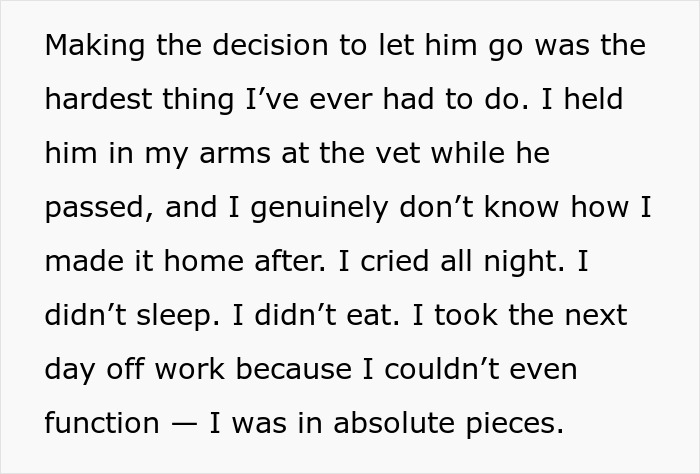
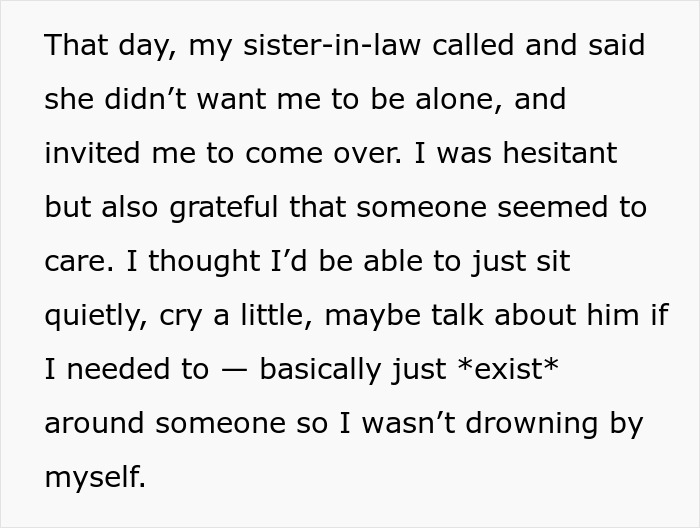
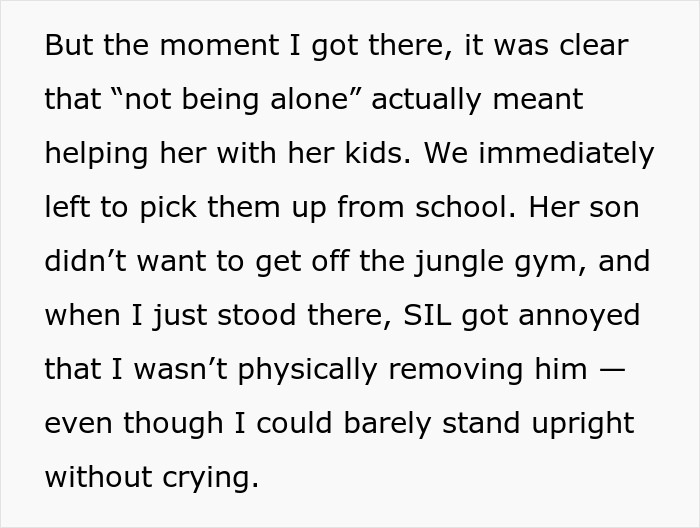

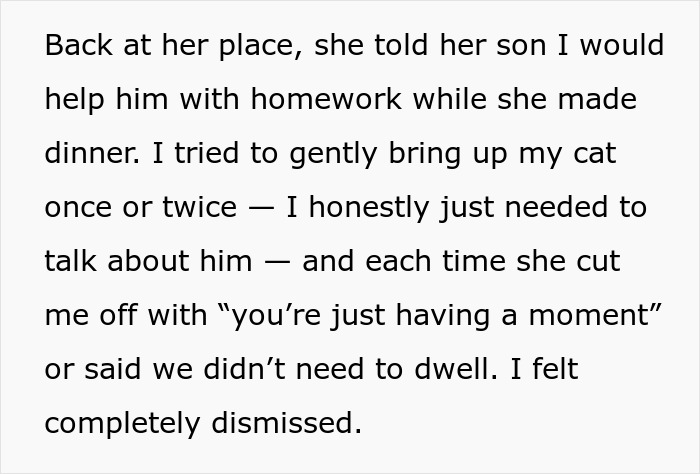

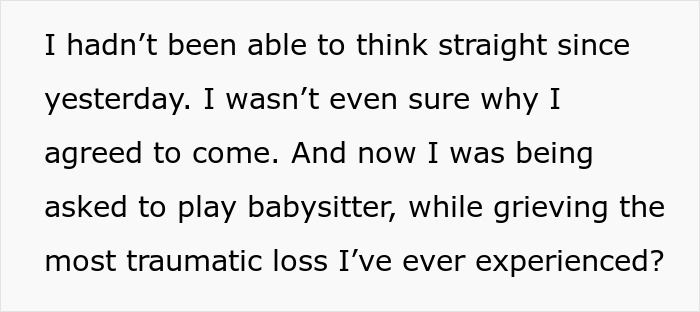

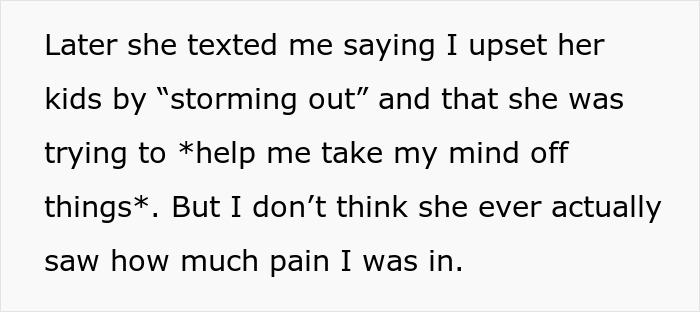


0 Comments